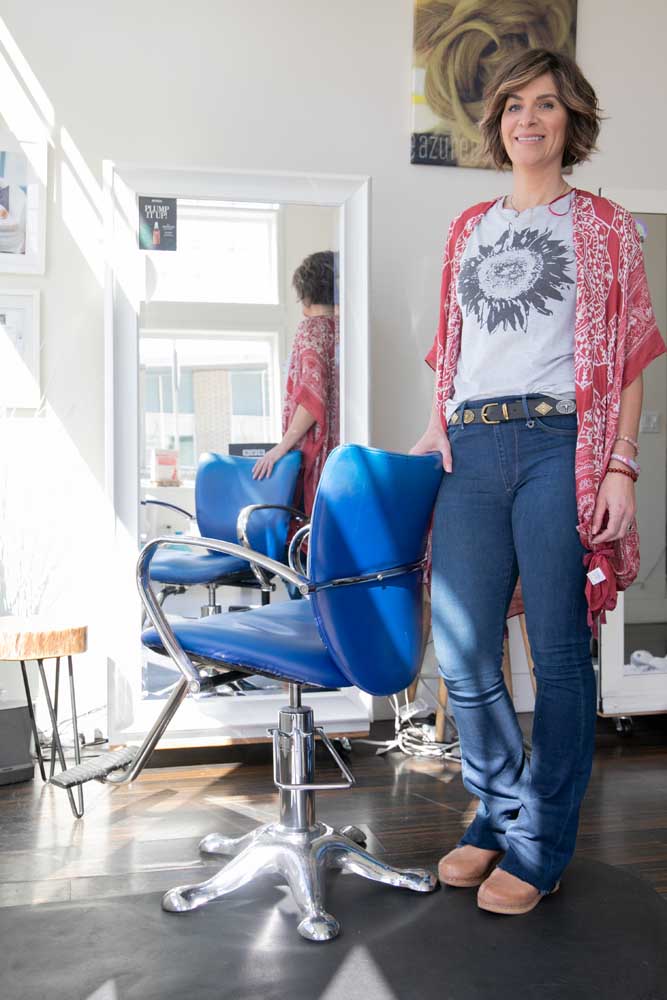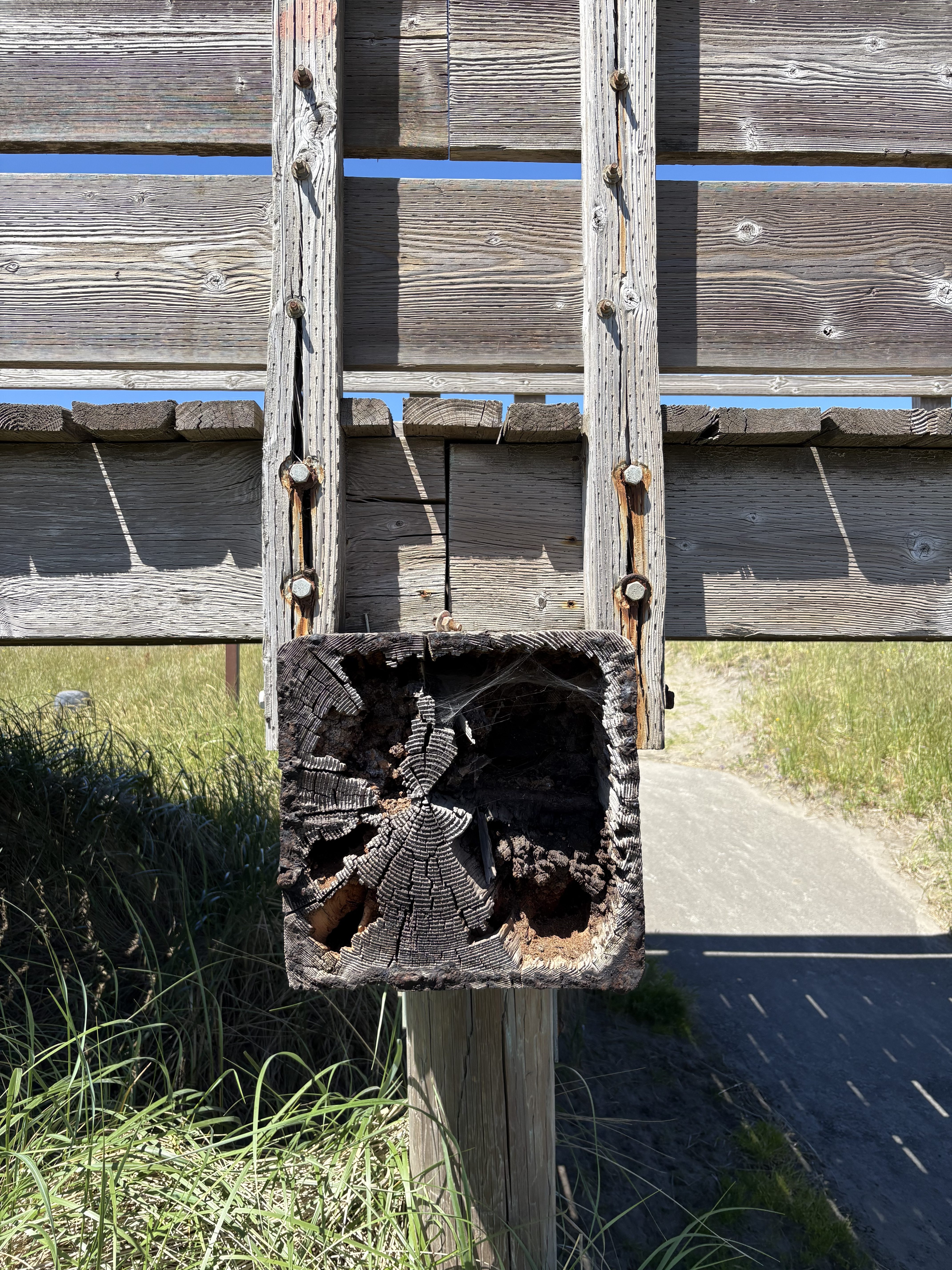Self-employed qualify for unemployment, but some still have questions
Published 1:51 pm Tuesday, March 31, 2020

- Amy Chadwick, owner of Azure Salon and Spa in Ilwaco, closed her salon after being ordered to do so by Gov. Jay Inslee.
LONG BEACH PENINSULA — Under the new federal stimulus bill, self-employed people are eligible for unemployment benefits.
Washington state is still setting up the infrastructure to get these workers qualified. Still, for some it is an inadequate response for businesses such as salons, which are bleeding right now, said D’Arcy Harrison, interim secretary for Cosmetologists of Washington United.
“In the last two weeks we’ve been operating in the void and we knew there was no income coming in,” Harrison said.
Harrison is advising people to keep filing weekly claims and track when they are filed, because the self-employed are eligible, even if the system tells them they aren’t.
Sacrifice for a healthy community
For 39-year-old Carol Reandeau, owner of Carol’s Salon, 101 17th St. N, Long Beach, the closure was understandable. Reandeau, and her fellow stylists Becky Lewis, 61, and Kat Oja, 29, didn’t want to get their clients sick. All three of the women are independent contractors. Oja and Lewis rent their chairs from Reandeau.
“I wouldn’t want to be the one to infect anyone,” Lewis said. “There are so many seniors on the peninsula too, it would make a big impact.”
But in the days after Gov. Jay Inslee’s March 17 announcement of the closures, the women felt as though there were no answers on how to survive without any income. Reandeau went through similar economic uncertainty during the government shutdown, because her fiance worked for the coast guard. At least then, there was guaranteed back pay, she said.
Lewis couldn’t imagine something like this happening to her when she was starting her career — the way it is happening to Oja, mom to a 10-year-old and just two years into her career.
“Even missing one day is a lot of income,” Oja said.
The community is strong here though, Reandeau said. One of her clients ordered special hair extensions for her wedding, which was then canceled. Still, she called Reandeau and asked to pay the full amount, because she knew it was a tough time to be in the salon business.
“People go above and beyond,” Reandeau said. “And it is really unusual.”
The salon is still selling hair products and gift cards, Reandeau said. Many salons are using gift cards as a way to supplement income.
Reandeau isn’t asking Oja and Lewis to pay rent on the days they don’t work. Closing salons was a good choice, Reandeau said. She hoped the sacrifice from business owners will help to slow the spread of the disease.
Eligible for unemployment
Reandeau is part of Cosmetologists of Washington United, a group which formed in January 2019 in response to legislation that might have made it harder for cosmetologists to operate as independent contractors. The group started as a Facebook page and is working to establish itself as a nonprofit. Harrison is using the group to help spread information about what cosmetologists are eligible for through the stimulus.
The group’s message is that hair and money are not more important than lives, Harrison said. People can’t keep cutting hair in their homes or going to other peoples’ homes.
“We all have bills, a lot of people have kids they have to support, everyone is having a hard time but you have to follow the law,” Harrison said.
But no business could be prepared for what is happening right now. The average wage of a cosmetologist in Washington is about $40,000, she said. This is not a career where people always have an opportunity to save, she said.
In normal circumstances, independent contractors can tough it out, she said. She doesn’t see people in her line of work looking for a hand out. But when they are mandated to shut down, it is a whole different situation.
Originally, the only relief offered to people like her were the SBA loans, which she said made no sense to take out. The loans have a 3.75% interest rate, which is high compared to some of the rates being offered right now, Harrison said. The new stimulus package gave businesses two options for loan forgiveness, but there are a lot of hoops to jump through.
‘Seems like I fall in the cracks everywhere’
Charlotte Rock is a massage therapist and owner of Body Essence Massage, 802 S. Pacific Ave., Long Beach, which she has owned for 11 years. Rock wasn’t ordered to close, but she saw her last client on March 18, a day after Inslee ordered salons, tattoo parlors and barbers to close.
As a massage therapist Rock is considered an alternative healthcare provider. But it doesn’t seem right to see clients right now.
“I’m just feeling right now, among a number of different things, an ethical obligation to this community to be part of the solution to this thing,” Rock said. “So I haven’t been working, although technically I could be.”
There are no confirmed cases of covid-19 in the county and Rock wants to keep it that way. Plus, she feels a sense of solidarity with the salons and barber shops in town. But it is still a personal struggle for her. There are bills that need to be paid, and her husband is out of work as well.
The Small Business Administration is offering loans to businesses closed due to covid-19, but Rock doesn’t want to go further into debt. And it isn’t clear to Rock whether she will recoup anything from the government for the time she is shut down. She wants to do the right thing, but she needs answers.
“I just would like some guidance as far as what provisions do I have for my business, for grants,” Rock said. “And you can’t call anyone on the phone; between the SBA and unemployment you can’t get through to anybody.”
Rock registered as a corporation for tax purposes, and she isn’t sure she will get the $1,200 payout to individuals set aside in the $2.2 trillion federal stimulus bill. She isn’t sure she will even qualify for federal unemployment as a corporation.
“It seems like I fall in the cracks everywhere,” Rock said.
Unclear future
Amy Chadwick, owner of Azure Salon and Spa, 120 First St., Ilwaco, is trying to keep up on all the information about how to get grants and where to find money for small businesses. She, like Rock, isn’t interested in taking on more debt to get through the closure.
Chadwick thought she found a solution when she searched for grants through a federal website. She answered a questionnaire and it told her she might qualify for 47 grants. Then she started looking at the grants. Most were no longer available, others didn’t pertain to her business and some weren’t even in the state of Washington.
“I’m trying to actually be proactive, I’m trying to find avenues, I filled out a grant from Amazon, they put out something,” Chadwick said.
The scary thing is not knowing how long the closures will last. Non essential businesses are closed until at least April 8, but it isn’t clear if that will be extended.
Domino effect
Almost every dime Reandeau makes goes back into the community, she said. Her fiance, now a carpenter, called Reandeau’s occupation “ground zero” for the economic fallout, but he said he expects to feel the pain soon.
“He pointed out, ‘People like you were the ones that were hiring me,’” Reandeau said.
Economic downtimes can cause incredible loss in a community, and Reandeau said she knew there were going to be many more people hurting. She called the peninsula community special for how it rallies around one another and encouraged people continue to do that.
“A lot of your neighbors are going to be out of work, and people are going to try and drown themselves,” Reandeau said. “And you need to make sure they are okay.”








